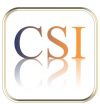Course Fee: $459 (Canadian currency)
A fully comprehensive Coaching Practitioner Certification program.
This certificate course is designed to help the coach bring a trauma-informed perspective to their work with clients who have experienced life-changing events. It will introduce you to trauma models, tools and skills, and enrich your understanding of the following areas: what leads to trauma; trauma and the brain; the physiological, mental, emotional, relational and social affects of trauma; trauma-related disorders; reactions to trauma across the lifespan; dealing with flashbacks, dissociation and PTSD; the trauma vortex; the road to healing; trauma recovery models; working with traumatized children and adolescents; and ethical issues in trauma coaching.
You are free to commence at a time that suits your schedule and given six months to complete the course. Full tutor support is provided by a coaching mentor. Upon satisfactory completion of the course a certificate will be mailed out to you.
SYLLABUS
Module 1: Introduction to Trauma
Topics Studied
- What is a trauma?
- What leads to trauma?
- Trauma and the brain
- Risk factors increasing the likelihood of trauma
- Factors which increase resilience
- The role of triggers
- Important points about remembering a trauma
- Effective listening
Learning Outcomes and Summary of Objectives
Upon successful completion of this learning module, the student should be able to:
- Explain what trauma is
- List risk factors which might increase the likelihood of trauma
- Suggest factors which may enhance resilience, and help protect against being traumatized
Module 2: The Footprints of Trauma
Topics Studied
- The biology of stress and trauma
- A bias against what is good and nurturing
- Understanding dissociation
- Understanding numbing
- Trauma and feelings of guilt and shame
- A focus on incest and sexual abuse
- Typical feelings experienced by survivors of sexual abuse
- Some thoughts on feeling broken …
- Reactions to trauma across the life span
Learning Outcomes and Summary of Objectives
Upon successful completion of this learning module, the student should be able to:
- Describe the biology of stress and trauma
- List five forms of dissociation
- Explain the relationship between trauma, guilt and shame
Module 3: Trauma Related Disorders
Topics Studied
- Post-traumatic stress disorder
- Acute stress disorder
- Panic disorder
- Obsessive-compulsive disorder
- Generalized anxiety disorder
- Major depressive disorder
- Dissociative disorder
- Borderline personality disorder
- Addictions and trauma
Learning Outcomes and Summary of Objectives
Upon successful completion of this learning module, the student should be able to:
- Distinguish between Acute Stress Disorder and Post Traumatic Stress Disorder
- Describe the symptoms associated with major depressive disorder
- Suggest tips for dealing with flashbacks
Module 4: The Road to Healing
Topics Studied
- The ten tasks of healing
- The journey towards healing
- The trauma vortex
- Reducing your arousal (or activation) level
- The role of relaxation
- The role of cognitive behavioural coaching
- Some additional interventions and therapies
- Trauma, grief and loss
Learning Outcomes and Summary of Objectives
Upon successful completion of this learning module, the student should be able to:
- Summarise the ten tasks of healing
- Describe the trauma vortex
- Discuss the relationship between trauma, grief and loss.
Module 5: Trauma Recovery Models; and Working with Traumatized Children and Youth
Topics Studied
- The stage-specific model
- The self-trauma model
- The phase-oriented model
- Supporting traumatized children
- What is play therapy?
- Teenagers and group work
- Therapeutic activities for children and teenagers
- Childhood traumatic grief
- Resonating trauma
Learning Outcomes and Summary of Objectives
Upon successful completion of this learning module, the student should be able to:
- Describe the stage-specific model
- Summarise the self-trauma model
- Summarise the phase-oriented model.
Module 6: Ethics in Coaching
Topics Studied
- Ethical framework for good practice in coaching
- The aim and purpose of the code of ethics
- What should I do if my client’s suicidal?
- High risk groups
- Ambivalent clients
- Protection against future suicide attempts
- Structuring a crisis coaching session
- Advice on how to handle a suicidal caller
Learning Outcomes and Summary of Objectives
Upon successful completion of this learning module, the student should be able to:
- Defend the ethical principles associated with good practice
- List the areas covered in coaching codes of practice
- Suggest ways of dealing with a suicidal caller
Suggested reading for the course
Cori, J.L. (2007). Healing from trauma: A survivor’s guide to understanding your symptoms and reclaiming your life. Cambridge, MA: Marlowe & Co.
Duration of the course
The course consists of six knowledge and practice-based learning modules (comprehensive course notes), supplemented with suggested background reading, reflection activities and submission of tutor-marked assignments. There is one marked assignment per module. Courses are offered on a part-time basis and are designed to be completed within six months. Many students prefer to complete their studies in a shorter time frame.
